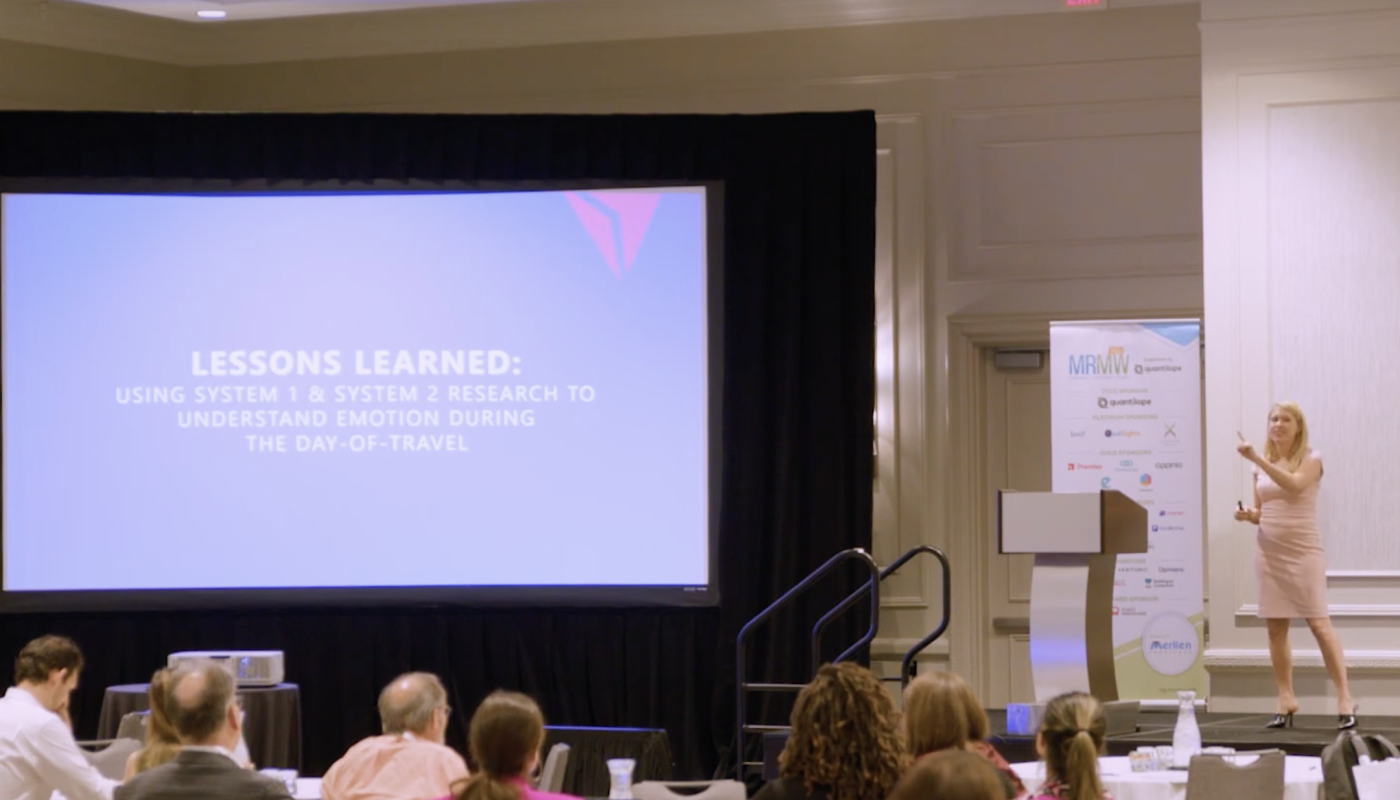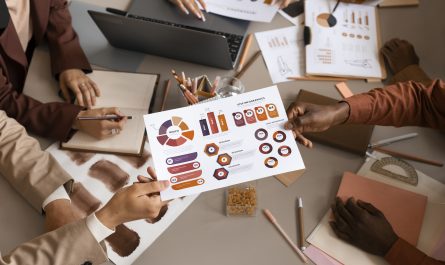The Delta Airlines Consumer Insights team left a lasting impression on MRMW 2023 – not only because of the active participation of the entire team, but also because Lizzy Riggs Martinez’s presentation about customer emotions received one of the highest ratings from our delegates. In the lead up to our 2024 conference we are offering our readers the chance to re-live her presentation.
Leveraging system 1 and system 2 research techniques to uncover customer emotion during the day-of-travel
Lizzy Riggs Martinez, General Manager, Consumer Insights, Delta Air Lines
You can find all MRMW conference recordings for free in our video section!
Video transcript below (This is an AI generated summary. There may be inaccuracies.)
Leveraging system 1 and system 2 research techniques to uncover customer emotion during the day-of-travel
Lizzy Martinez, the General Manager of Consumer Insights at Delta Airlines, discusses the importance of using both System 1 and System 2 research techniques to understand customer experiences. Delta utilized these methods to identify the most stressful part of the journey, which was boarding. By understanding this emotional response, Delta was able to improve the customer experience by implementing digital notifications and proactive check-in offers.
The airline also sought inspiration from other industries to infuse moments of delight into the travel experience. Additionally, Delta began focusing on employee input in major initiatives, creating a team dedicated to employee enablement and implementing digital surveys. By balancing research on both customers and employees, Delta continues to enhance the overall travel experience.
Lizzy shares her experiences as both a customer and an employee of Delta, highlighting the emotional moments of air travel that can be both positive and negative. She emphasizes the importance of understanding these emotions to improve the travel experience, as Delta’s mission is to make it the best. Martinez discusses how her team has used various research methods, including System 1 and System 2 techniques, to understand emotional responses to the travel experience. The first lesson she imparts is that these research methods are most effective when used together, rather than as alternatives.
The importance of using both system 1 and system 2 research techniques to understand customer experiences: System 1 refers to visceral, emotive reactions, while System 2 is more rational and logical. Delta identified the need to understand customer stress during travel and used Fitbits to track heart rates and a mobile ethnography app for short surveys. They also conducted hour-long IDIs for further questioning.
The results showed that boarding was the most stressful part of the journey, with a significant decline in heart rate once customers reached their seats, a moment referred to as the “woosah moment.” Understanding this shift in mindset helped Delta capitalize on this moment and improve the customer experience.
Lizzy discusses two key lessons the airline has learned in enhancing the customer experience. The first lesson is to allow customers to enjoy in-flight entertainment as soon as they settle in their seats, which has led to increased joy and relaxation. The second lesson emphasizes the importance of considering the perspectives of employees, particularly frontline workers.
In 2021, Delta revisited stress research, recruiting both customers and employees to understand their day-of-travel experiences and identify moments of high intersection where stress levels are high for both parties. One such moment is boarding, which is stressful for customers trying to reach their seats and for employees responsible for managing on-time departures and dealing with the chaos at the airport. To address this issue, Delta has implemented digital notifications and proactive check-in offers to reduce the stress on both customers and employees. The third lesson is to look outside of one’s category for inspiration, which Delta has done by implementing these customer-focused solutions inspired by other industries.
The team discussed their efforts to infuse moments of delight into the travel experience by understanding what constitutes delight for their customers. To gain insights, they looked beyond the airline industry, analyzing hundreds of thousands of five-star reviews from other categories such as hotels, restaurants, and cruises. The commonalities they identified included feelings of being heard, feeling unique, and feeling supported.
Delta applied these learnings to their own industry by removing silos, implementing Unified Service Excellence training, and focusing on empathy and thoughtful tokens like notes of appreciation. The team emphasizes the importance of making customers feel heard and recognized as individuals, which can lead to moments of unexpected joy and delight.
Last but not least, Lizzy highlights the importance of balancing research on both customers and employees while maintaining efficiency. She explains that while Delta have historically focused on customer research, they are now making efforts to include employee input in major initiatives. To achieve this, they are creating a team dedicated to employee enablement and implementing digital surveys in areas where employees are already engaging. The balance between customer and employee research is a work in progress, and they are continually trying to improve the process. Additionally, Delta has conducted research on stress levels during different types of flights, such as business trips versus vacations, and found significant differences in mindset and behavior.
Join MRMW North America on June 26&27 to hear more eye-opening presentations, case studies and experiences!










 by
by 



